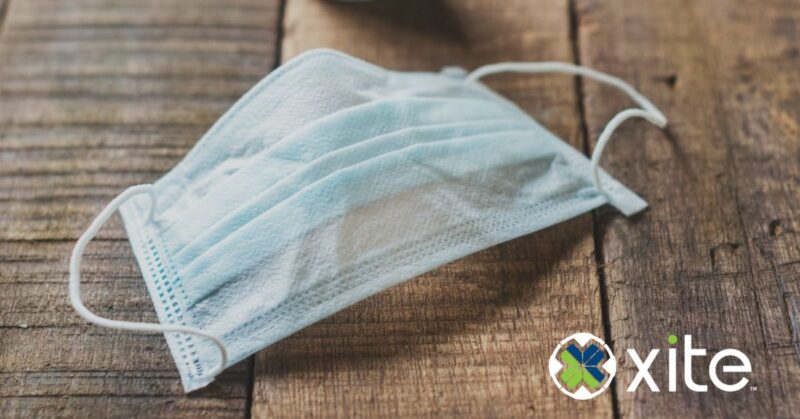
The Covid pandemic impacted the dental profession in infinite ways, from office closures, to supply chain issues, staff and patient retention, and dental practice sales. For more than a year, the pandemic altered the delivery of care, financial stability, and how many oral health care professionals felt about their occupations. All high-contact industries were hit hard. Some never reopened, some are open and operating as usual, and others are booming.
With patients afraid to be in close proximity with caregivers for the many months since the virus outbreak, dental revenues declined 38% in 2020 and may remain as low as 20% less in 2021.1
A report compiled by two research firms that focus on dental practice analytics, noted that practice revenue decreased by 6% ‘year-over-year’ in 2020 and average production dropped by 3.1%, but that the top 10% of dental practices surpassed 2019 revenues during 2020 and saw patient growth.2
While the entire country came to a halt, including the routine practice of dentistry, so did dental practice sales. Let’s take a look at how things changed and a peek at how they are recovering.
Duff Bourassa, Vice President of Xite Healthcare Real Estate & Practice Sales in the Dallas office, says most dentists lost at least the months of April, May, and June of 2020 to the pandemic, and then spent months during the lockdown seeing only emergency or urgent cases. “In Texas in particular, a lot of people lost additional weeks because of the big freeze here,” he notes. “2020 in general was a very unstable year.”
“In Texas in particular, a lot of people lost additional weeks because of the big freeze here,” he notes. “2020 in general was a very unstable year.”
Thankfully, almost every dental practice Bourassa was in touch with was able to get some sort of PPP loan. “That helped a lot of them,” he says. But it did not reverse the pandemic’s impact on the most important consideration when buying or selling a dental practice—the numbers.
“Most dentists took a hit in 2020 and knew that they needed time to build their practices back up to 2019 numbers if they were thinking about selling,” Bourassa says. “There’s still not enough capacity; there are just not a lot of practices available for sale.”
Bourassa says many Texas dentists were ready to sell their dental practices for any number of reasons and inventory was stable pre Covid. “It was kind of even, there were a lot of buyers and a lot of sellers,” he notes. In fact, in the private market, dentists were being quite choosey because there were so many options. “They could be picky about location, payer mix, size of the facility,” he explains
According to Bourassa, the “good” dental practices are all almost back to their 2019 numbers. While banks historically looked at a three-year window of practice performance and take an average of collections over those three years, they are basically ignoring 2020. Instead, they’re comparing the 2019 numbers with the last 12 months of the current P&L statement. “As long as the last 12 months are heading back towards 2019 production, then they’re giving you the benefit of the doubt and allowing you to use 2019 numbers as an average or standard,” Bourassa explains.
“As long as the last 12 months are heading back towards 2019 production, then they’re giving you the benefit of the doubt and allowing you to use 2019 numbers as an average or standard,”
For dental practices trending their 2019 production, selling is not a problem. “It’s the ones that have taken a dip and are not coming back as quickly that are struggling a bit,” Bourassa says. “So today, we’re having two kinds of conversations. If you’re back to 2019 numbers, you’re in really good shape and we can sell this quickly. If you’re not, let’s talk about what we can do to help you get there more quickly. Once you’re at that point, then we can talk about putting your practice on the market.”
“So today, we’re having two kinds of conversations. If you’re back to 2019 numbers, you’re in really good shape and we can sell this quickly. If you’re not, let’s talk about what we can do to help you get there more quickly. Once you’re at that point, then we can talk about putting your practice on the market.”
“In today’s ‘seller’s market,’ a lot of people are ready to sell but just don’t know where they need to be,” Bourassa continues. “We educate dentists on what their practice needs to be doing today in order to make it both lendable, to where a bank will lend on it, and sellable, to where a buyer will be interested enough in it.”
What factors made some dental practices recover more slowly?
The dental offices that had good systems in place, from the practice management software to proactively texting clients to frequently updating their websites, recovered faster.
“When the younger dentists are using software to text people appointment reminders and practice updates, posting their Covid 19 protocols on their websites, and letting patients know they’re open for business it makes patients feel like they stayed in touch,” Bourassa says. “Not actively keeping in touch with the patient base makes patients more hesitant. They need to feel like you’re taking steps to protect them and creating a safe environment for them to come into. Those dentists who are just waiting for people to show up again are struggling.”
Unexpected benefits of the pandemic slowdown
Interestingly, the downtime created by the pandemic enabled dentists and their staff to slow down and think about their jobs, their protocols and production, and the quality of their care. It also gave them insights into their personal lives, what they missed by being at work all day or what they wanted to change to make it easier to have a career and a good homelife.
“Anytime you get extended time off, it’s a refresher,” Bourassa says. “I think a lot of dentists realized that what they typically did in four or five days, they can do in three and a half. We’re seeing dentists cutting their working hours and doing more in less time. They may have done things like cut lunches down to 30 minutes to shave off half a day of work over the course of a week.”
How the Xite team makes a difference
Among the many services Xite offers, data analysis is one of the most important and useful, according to Bourassa. “We’re looking holistically at the company,” he explains. They identify the revenue and where is it coming from. They analyze what the practice is doing, what’s working well, and figure out how to highlight that to a perspective buyer. “When someone’s looking at multiple dental practices, how do we make ours stand out?” he says. “Being able to understand how they’ve operated, what they’ve done a little differently or what makes them unique, and identifying things they may not see, really helps us put their practice in a better light when we start marketing it and showing it to potential buyers.”
While some practitioners may have decided to sell their practices directly because of the pandemic, for others is may have been a matter of timing—approaching retirement, due to a health issue, concerns about changing tax laws, or just wanting to relocate, increase the physical size of their building, or expand their services. Many of them have had or can expect a successful sale, especially if they partner with professional practice transition brokers experienced in dental office real estate who specialize in connecting the right buyers with sellers.
Watch for future topics:
How the Covid pandemic impacted DSOs.
The little things that make a difference in marketability.
Are you ready to list your practice?
Talk with the experts at Xite to get the most for your practice. Contact us for a free practice evaluation today.
Resources
- Dental practice sales during COVID-19. Henry Schein Dental Practice Transitions. https://dentalpracticetransitions.henryschein.com/pandemics-effect-on-selling-or-buying-a-dental-practice-dental-practice-transitions/. Accessed December 2, 2021.
- Hogan B. In 2020, dental practice revenue declined 6%. Dentistry IQ. March 29, 2021. https://www.dentistryiq.com/practice-management/industry/article/14200344/in-2020-dental-practice-revenue-declined-6. Accessed December 2, 2021.
About Xite Acquisitions
Xite Companies is the industry-leading provider of commercial real estate services and practice sales to healthcare professionals. We provide physicians across the U.S. with strategic healthcare-specific real estate representation through utilizing a data driven approach to site selection. Xite’s acquisitions team allows physicians access to the largest database of qualified buyers for healthcare practices. Visit us at xiteco.com


